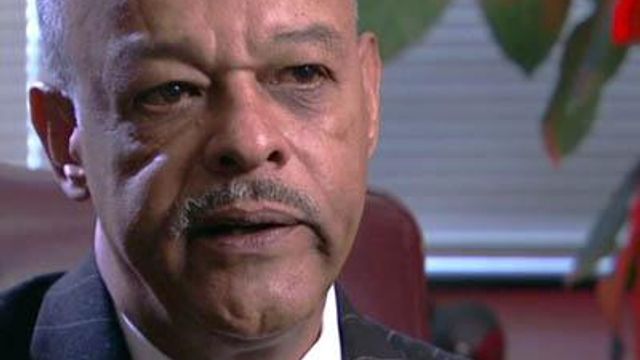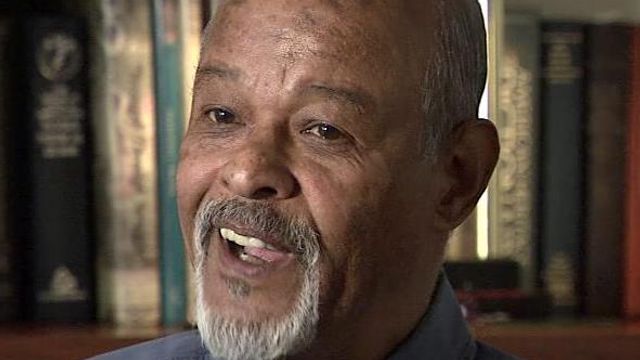Political pioneer Ralph Campbell dies
Former State Auditor Ralph Campbell Jr., the first black person elected to a statewide political office in North Carolina, died Tuesday night after a battle with lung cancer. He was 64.
Posted — UpdatedCampbell was diagnosed with lung cancer last fall and died at Duke Raleigh Hospital, where he had been hospitalized for more than a week.
Campbell will lie in repose in the State Capitol rotunda from 10 a.m. to 4 p.m. Friday.
A visitation will be held from 7 to 9 p.m. Friday in the Fletcher Opera Theater at the Progress Energy Center for the Performing Arts in downtown Raleigh. His funeral will be at noon Saturday at St. Ambrose Episcopal Church, 813 Darby St., followed by interment at Carolina Biblical Gardens in Garner.
Campbell's family was a fixture in the world of Raleigh politics and civil rights. In 1960, his younger brother, Bill Campbell, integrated Raleigh city schools when he entered the second grade at all-white Murphey Elementary School.
Their parents tried to enroll both boys and their daughter, but only Bill, the youngest of the three, was approved.
"The school board, in their decision process, said, 'If we're going to get involved in this experiment of integration, we really need to start at the very youngest age,'" Ralph Campbell said in a 2009 interview.
While Bill Campbell would later become mayor of Atlanta, his older brother stayed in Raleigh and, after earning a business degree from St. Augustine's College, rose through North Carolina's political ranks.
"Aside from pushing for change, you had to be involved in the social process," Campbell said in a 2000 interview. "The people who changed the laws were those who got elected to office."
Brad Thompson, a longtime friend and a former Raleigh City Council member, said that Campbell benefited from watching his parents, the late Ralph Campbell Sr. and June Campbell, in their civil rights efforts.
"(It was) not so much their prominence, but their commitment to public service and their commitment to standing for things in which they believed," Thompson said. "(That) was something that Ralph integrated within his work."
State Sen. Dan Blue agreed that Campbell was destined for public service.
"I think that the seed was sown early in his life that he had to be involved," Blue said. "Ralph's legacy is one of high integrity, of constantly caring how other people progress through this experience we call life ensuring there was a sense of fairness in it."
Campbell served on the Raleigh City Council for three terms, from 1985 to 1991. He was mayor pro tem during his last two-year term.
Mayor Charles Meeker, who served with Campbell on the City Council, called him "a great friend to the city," noting he served as ambassador to Compiegne, France, which is one of Raleigh's sister cities, and worked on public improvements like the renovation of Murphey School for senior housing.
"He not only cared about southeast Raleigh, but cared about the whole city," Meeker said.
In 1992, Campbell was elected state auditor, becoming the first – and to date only – black person to serve on the Council of State. Campbell had worked for 14 years as an auditor for the state Department of Revenue and the State Health Benefits Office before his election.
During his 12 years as state auditor, he brought more technology to the office, and his staff conducted about 3,600 audits during his tenure.
State Auditor Beth Wood said Campbell stood up to state lawmakers who sometimes pressured him to halt critical audits of state agencies.
"Members of the General Assembly would call over here and ask him to back off an audit, and Ralph Campbell did not back off. He published it anyway," Wood said. "He is somebody I looked up to, he was a mentor to me, and he was a friend."
Thompson said Campbell "brought integrity and honesty" to the State Auditor's Office.
Campbell was defeated in 2004 in his bid for a fourth term, and he said in a 2005 interview that he felt race played a role in his loss.
"This is still North Carolina," he said. "We have made tremendous progress ... but we still have a long way to go."
North Carolina Democratic Party Chairman David Young said Campbell has inspired other black people to run for political office in the state.
"We are grateful for his example and a better, more diverse party because of it," Young said in a statement.
Since leaving office, Campbell did some consulting work and worked with federal auditors on checking up on economic stimulus projects.
He is survived by his sister, Mildred Christmas; two brothers, Bill and Edwin Campbell; and nieces and nephews June Christmas, Billy Campbell, E.J. Campbell, Christina Campbell and Rachel Campbell.
• Credits
Copyright 2024 by Capitol Broadcasting Company. All rights reserved. This material may not be published, broadcast, rewritten or redistributed.






